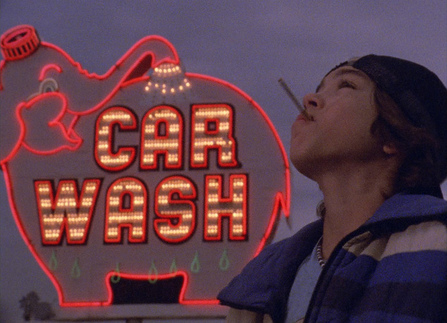 Martin Bell's Streetwise is an intimate, gritty portrait of the lives of nine desperate teenagers living on the streets of Seattle in the 1980s. Streetwise's styling is very much a work of Cinéma vérité, one in which the filmmakers attempt to be as unobtrusive as possible, avoiding artificiality in an attempt to provide as truthful a portrait of these character's lives as possible. The children which Streetwise documents come from various backgrounds, some runaways by choice, others simply victims of circumstance, but they all share the same struggle now, one in which they are forced to adapt in order to survive. Observing quite a few children, including Tiny, a teen prostitute, DeWayne, a street hustler, and Shellie, a baby-faced blonde who is new to the streets, Streetwise reveals children whose actions and general perspective on life are well beyond their years, chronicling their day-to-day existence and interactions with each other, and the mainstream, populace way of life. The humanism of Streetwise is without question its most powerful attribute, revealing how the harshness of this environment can force mutual companionship among the less fortunate, with older street kids even becoming mentors towards the younger children. Make no mistake, these characters are still very abrasive, by and large, but Streetwise makes this volatile quality feel completely warranted due to its ability to visually capture the harsh environment in which they spend their day-to-day. While no violence is ever shown on screen, there is a palpable sense of danger lurking throughout Streetwise, as the film exhibits how this lifestyle leaves one feeling very naked, completely lacking any sense of security in this type of lifestyle. While each of the film's subjects are compelling, the story of DeWayne is perhaps the most emotionally resonant. He is a young street hustler headed down the same path of his father, a man who is currently in jail. DeWayne is a victim of circumstance, with his only legal guardian being in prison, and one of the most powerful scenes in the entire film takes place at this prison, where DeWayne's father lectures him to be smarter about his life. Without going into details, things don't end well for DeWayne, and the through-line of his character provides the film's most powerful denouement of this type of tragic circumstances, offering up the notion that these young individuals could end up finding more peace in death than life, given their circumstances, a harrowing idea to even fathom. Featuring an observant, unobtrusive eye, Martin Bell's Streetwise is a powerful and humanistic documentary about a group of teenage street kids, each of which shares many similarities but also differences in their struggles to survive in this harsh environment they inhabit.
0 Comments
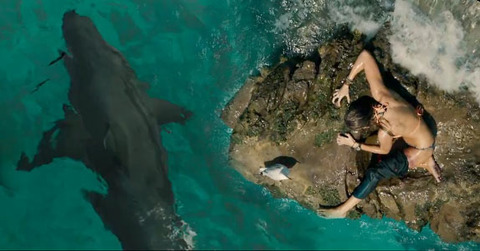 Jaume Collet-Serra's The Shallows is the perfect antidote for the summer blockbuster slog full of bombastic action and whiplash narratives, being a stripped-down, white-knuckle thriller that makes atmosphere and tension a high priority, leading to a diabolically entertaining tale of self-sufficiency. The story is simple- A mere 200 yards from shore, Nancy, an American surfer who is all alone, is attacked by a great white shark. Able to seek refuge on a small island that rises during the low tide, Nancy finds herself in a battle with time, losing blood quickly, with 200 meters of water being the difference between her living and dying. Tight and tense, The Shallows at its core is a story of self-sufficiency, one where Nancy finds herself confronted by death, forced to fight back in order to survival. Just like everyone's favorite shark film, Steven Spielberg's Jaws, the shark in Jaume Collet-Serra's The Shallows takes on borderline supernatural qualities, being a menacing, blood thirsty creature that borders on sadistic instead of territorial. While this may bother some viewers, it's important to remember that The Shallows' intentions are based more in horror than factual zoology, and Jaume Collet-Serra's The Shallow delivers here, being a film full of tension and thrills in its tight, under 90 minute, package. One of the main reasons why The Shallows works so well is the skilled direction by Jaume Collet-Serra, a filmmaker that takes the time to fully understand the environment he has to work in. On first arrival at the small, secluded beach, the filmmakers fully embrace the perspective of their main protagonist, exhibiting how this setting is Nancy's paradise, with the crystal clear water and the sound of the waves providing a therapeutic, calming sense of peace. The secluded nature of this beach is Nancy's ally, taking her away from her troubles and connecting her closer to her mother, a woman whom we learn loved this same location and has recently succumbed to her fight with cancer. Jaume Collet-Serra uses all sorts of cinematic devices to establish this secluded setting with slow motion photography and overhead wide-lensed compositions, even establishing the above water vs. below water dynamic early on, giving the audience a feel for the secluded, tranquility of this setting. When the shark attack happens The Shallows quickly transforms, showing how quickly this perceived paradise can become one of pure terror, yet Collet-Serra's cinematic tools barely change, with the same decisions that were once used to exhibit peace and tranquility now used to evoke a sense of fear and terror. Those overhead shots that captured the quiet soothing paradise now elicit the pure terror of Nancy's seclusion, one where her and her alone must fight to survive against a hungry, massive great white shark. Another great use of the environment is how Collet-Serra uses the bobbing waves to obstruct his main character's sight lines, with the oscillating sea evoking a sense of the unknown where Nancy, and the audience, routinely lose eyesight of the threat that is right in front of them i.e the shark. The Shallows does have its issues, one of which is its borderline comedy of errors, where the film goes a little too heavy on doubling down on Nancy's misery, injecting obstacles to her struggle that feel inorganic or forced, even in ways that border on laughable, like the writer was sadistically coming up with ways to emotionally torture this character. This is particularly apparent towards the final act, where Nancy finds herself confronted with a comedy of errors that include a random infestation of jellyfish and faulty flares, but I'd be hardpressed to say it took me out of the film. Lean, mean, well-directed, and full of tension from start to finish, Jaume Collet-Serra's The Shallows is big, dumb fun, a thrilling survival horror film that is probably the best "shark" film to come out in over a decade. 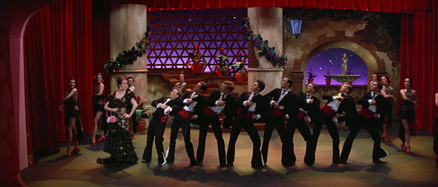 Set in 1930s Paris, Blake Edwards' Victor Victoria is a delightful romp of a film, a warm and friendly sex comedy that shows off Blake Edwards' talents as a comedic filmmaker while vibrantly commenting on the social stigmas centered around homosexuality and societies preconceived gender roles. The basic narrative revolves around Victoria Grant, a trained soprano singer, who is having a hard time finding a job in Paris. She goes from audition to audition, barely making enough money to provide herself food and shelter. One fateful night she encounters Carole 'Toddy" Todd, a gay cabaret singer, who himself has recently been fired from his singing gig at a club named Chez Lui. In an effort to help them both out, Todd concocts an outlandish plan: With Todd acting as her manager, Victoria will pretend to be a man in order to get a job as a female impersonator. While deceptive, the plan works in spades, finding Victoria, who now goes by Victor, quickly becoming the toast of Paris and its elite class of theater goers. Things become complicated when King Marchand, a handsome, stereotypical macho man falls in love with the Victoria he sees on stage, only to be shocked when he learns that Victoria is in fact "a man". This sets off a highly entertaining falling deck of cards, which finds King attempting to reconcile his feelings for "Victoria", Victoria falling in love with King, and King's business associates, aka the mafia, not being particularly tolerant towards what they believe is King's newfound homosexuality. While I'm far from an expert of Blake Edwards, only having seen a handful of his work, what has become quite apparent of the filmmaker is his effortless tact for comedy, with Victor Victoria being no exception to that rule. A film that manages to feel warm, friendly, and light-hearted, Victor Victoria effortlessly touches on important social issues related to the perceptions of masculinity, femininity, and homosexuality, while never losing its breezy, carefree tone. From dry wit, to slapstick comedy, Blake Edwards' Victor Victoria is a film that perfectly balances its tones, capturing the warmth of romance, the coldness of despair, and the absurdity of societies preconceptions about the relationship between strength and weakness as it relates to the masculine and feminine forms. At its core, Victor Victoria is a film that trumpets egalitarian principles, poking fun at the absurdity of viewing gender as anything but equal simply becomes of their surface-level differences. James Garner is perfectly cast as the masculine, appropriately named King Marchand, a man who simply can't get over his initial attraction to Victoria, confronted with the concern and fear that he is attracted to a man. He is a character who personifies the perceived weakness of homosexuality, a man who even after learning that Victoria is indeed a woman becomes concerned of other's perceptions of him, not "wanting to be seen as a fag". One of my favorite comedic sequences of the film takes place after King Marchand and Victoria have fallen for each other, with Blake Edwards juxtaposing the two characters at two very different events, a boxing match and the opera. This sequence on the surface may seem like just another effective comedic gag, but one could argue it defines egalitarian principles, showing Victoria struggling to enjoy the boxing match, mortified by the violence, while simultaneously capturing King Marchand's boredom at the opera. Each character very much represents the masculine and feminine constructs in this sequence yet they each love each other, being separate but equal forces that each can thrive off of each other differences. The choreography, visual gags, sharp wit, and comedic timing are all on point in Blake Edwards' Victor Victoria, and combined with a talented cast of Julie Andrews, Robert Preston, and James Garner, the film doesn't disappoint, being both a whimsical romantic comedy and pointed commentary on gender roles in society  James D. Solomon's The Witness takes an investigative look at the famed murder of Kitty Genovese, a woman who was repeatedly attacked on a street in Kew Gardens, Queens. The murder gained massive notoriety with The New York Times asserting that 38 witnesses saw the attack take place but did nothing to help. The aftermath of this woman's death sparked outrage in the community and the nation, with her death becoming a symbol of urban apathy. Following the efforts of her younger brother, Bill Genovese, a man who has never been able to fully let go of his older sister's untimely death, The Witness is a powerful documentary that is both humanely intimate and vast in its exploration of larger social issues. James D. Solomon's The Witness is a very powerful investigative crime documentary due to the spotlight it shines on Bill Genovese, a man who has become obsessive about his desire to learn the truth about his sister for his own personal resolve. Bill is a man who looks into every angle about the case itself, examining the crime scenes and learning about the the gross exaggerations by the media to feed their narrative. The film exposes how this narrative of human apathy became entrenched into the psyche of society, becoming a rallying cry for the importance of showing apathy and compassion. More importantly, The Witness showcases how this social narrative effected Bill himself, a man who joined the Marines after the start of the Vietnam War, with this urban apathy narrative dictating many of the decisions that made up his life and shaped his identity. The Witness is as much about how death shapes the living and those close to the departed as it's about society, with Ben being a man whose decisions in his life were shaped by the heinous murder of his sister. Bill's obsession is his way of dealing with his sister's death and the way The Witness explores death's effect on life is one of its most powerful attributes. Bill's journey for the truth exhibits societal's desire to feed a narrative, showcasing how quickly speculation can become fact and manifest itself into the very culture, a very dangerous thing when it isn't the fully-fleshed out truth. Apathy was certainly a factor in the death of Kitty Genovese, but the way the full-fledged story never was told is rather apalling, making this heinous act of violence even more depressing about humanity. In a way, The Witness is an emotional cocktail of forgiveness, acceptance, media sensualisation, and the desire for the truth, with Bill being a character who comes to accept his sisters death through the making of this film, a man who has come to understand that he will never fully understand the truth of her death. 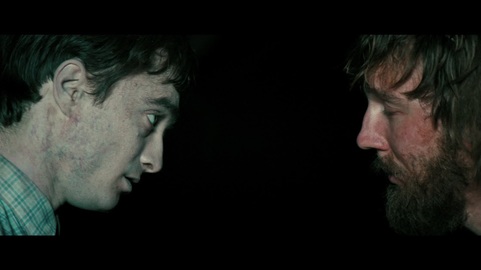 Dan Kwan and Daniel Scheinert's Swiss Army Man is a singular experience, a film that uses the stranded on a desert Island motif to create a lively, expressionistic examination of loneliness, depression, alienation, and the need for empathy in humanity. The film focuses on Hank, a young man who finds himself stranded on a desert island. Accepting his dire circumstances, Hank is on the verge of suicide, but when a corpse washes up on the sea, he becomes entranced, befriending the corpse, even naming it Manny. Eventually Hank discovers his new friend can talk and has a myriad of supernatural powers, many of which may be the key to helping Hank find his way home. Swiss Army Man is a film that uses it's bizarre narrative to deliver an empathetic study of a character in Hank who has essentially been beaten down by life. It's about the importance of loving oneself, blurring the lines between reality and fantasy, as it presents an endearing study of the importance of love and acceptance. Through Hanks befriending of this corpse, Manny, Swiss Army Mann slowly reveals details of Hank's personal life, subtlely exposing a young man who feels left behind by life itself, a character whose low self worth strips him of his ability to be happy. Through this surreal story, Swiss Army Man is is a humanistic exploration of companionship, love, self worth, and empathy, with the grotesque corpse of Manny becoming a symbolic representation of humanities need for understanding. The rotting corpse is merely a symbolic representation of Hank's perception of himself, with Swiss Army Man's most important commentary being about the need to love oneself and our need as a society to look beneath the surface and see the true beauty residing in all of us. Insecurities aren't a weakness but what makes us human, and through Hanks relationship with Manny he begins to become more comfortable with himself. While a fascinating and creative film, Swiss Army Man does struggle with pacing, often relying too much on its absurdist subject matter to engage the audience for stretches, something that becomes a bit too tiresome and didactic mainly in the middle of the film. It also can be quite uneven at times, with Swiss Army Man feeling at odds with itself between its absurdist devices and it's humanistic qualities. While uneven and poorly paced at times, Swiss Army Man is an empathetic celebration of life, a film that touches on the wide array of emotions that make us human, using this tale of a man's friendship with a corpse to comment on the importance of self worth.  Taking place 20 years after the events of the first film, Independence Day: Resurgence introduces the current state of humanity as one in a state of peace, with the historic fight for earth unifying the world as one collective, harmonious community. When a new threat emerges, with the same alien race returning to finish what they failed achieving last time, a new generation of humanity is the only thing standing in the way of utter-annihilation. Roland Emmerich's Independence Day: Resurgence is a big, dumb, lazy summer blockbuster that almost offers a step-by-step guide into how to create the laziest sequel imaginable. For starters, the screenplay and the plotting of the film feel almost identical to the first film, with the only exception being the pesky character development, you know that actually made the first film compelling escapism. All these new characters are uninteresting shills of characters from the first film, offering little charisma or depth to make them anything more than set dressing in human form. The lack of Will Smith is also jarringly apparent, with nearly every other character, small and large, returning except him. This is particularly a problem because no one in the entire film has even close to the same charisma or charm, leading to an abundance of comedic puns falling painfully flat on execution throughout the narrative. For those unaware, I'm an unapologetic fan of Roland Emmerich's brand of destruction cgi porn, but Independence Day Resurgence feels awfully phoned in even from a CGI porn/action set pieces perspective, a film that has very little rhythm to its action and drama, with both attributes feeling lazily rushed. Independence Day: Resurgence is the worst type of sequel, a lazy one, being a film that feels like it was rushed to production over a short time frame as opposed to having nearly two decades since the first film to develop a more compelling story that didnt simply copy the worst aspects of the formula.  Todd Solondz's Weiner-Dog is a brutally honest exploration of the human condition, chronicling the dysfunctional lives of four unique sets of characters, offering up individual vignettes, each of which is thinly connected through the passing of a Daschshund (Weiner Dog). Todd Solondz's Weiner Dog may appear more light-hearted than the filmmakers typical films, but as the film progresses it becomes apparent that the film has the same subversive humor, offering up a funny and piercing portrait of loneliness. This loveable Weiner-Dog first encounters a young boy of a wealthy family, a child that is recently recovering from a battle with cancer, the weiner-dog being his only semblance of a friend. From there the daschshund is saved from euthanization by a lonely veterinary technician, who soon sets off on a road trip with an old high school crush, a young man who himself is struggling with drug addiction, hurting due to the death of his father and inability to communicate clearly with his mentally handicapped brother. I won't go into too much detail of all of these stories, but Todd Solondz has created a deeply effective portrait of loneliness, and I don't think it's a coincidence that the four stories main protagonists progress in age, from the first being about a small young boy to the last being an elderly lady who is being visited by her granddaughter, who herself is suffering from insecurities and internal pain. Weiner-Dog is brutally honest about life itself, not being cynical at all, but simply arguing that the struggle with loneliness and regret is a part of the human condition. All four of these stories deal with loneliness but they come at this aspect of humanity from different directions, from the importance of companionship in the second story, to how loneliness can create a disenfranchised mentality that festers negativity and anger, with the third story being about a film professor played by Danny Devito who has accepted himself as a failure. Weiner-Dog is a film that laughs at the absurdity of life, finding the humor in the rollercoaster ride of sadness, joy, companionship and isolation that makes up the human condition. Featuring Todd Solondz unique brand of dark humor and brutal honesty, Weiner-Dog is another memorable dramedy from the maverick filmmaker, one that may not stand among his best, but still offers some very affecting sequences of genuine sorrow and truths about what it is to be human. 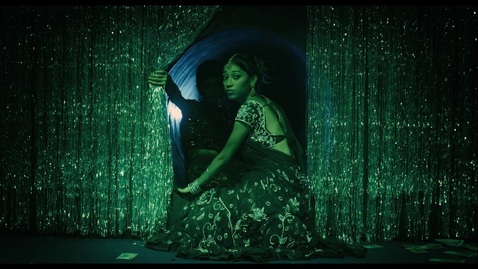 Partho Sen-Gupta's Sunrise is a nightmarish, psychological thriller centered around officer Lakshman Joshi, a man who sees his dark past converge with his current reality over the dark, rain-soaked urban streets of Mumbai. Challenging the viewer from the onset, Partho Sen-Gupta's Sunrise takes on a minimalist storytelling approach, being intentional vague on what exactly is going on around this Inspector Joshi, forcing the viewer to soak in this dark, noir-tinged environment. While i've been impressed with contemporary Indian cinema as of late, Sunrise is the first "genre" film I've seen which manages to stand up to some of the psychological crime thrillers out of South Korea, painting a portrait of darkness where morality feels hard to come by. Joshi is investigating the continual kidnapping of young woman in Mumbai, having to continually retrigger his despair related to his own daughter's disappearance several years ago. Through Joshi's patrols of the back alleys of Mumbai, the parallels between his past and his present begin to converge, taking a psychological toll that blurs reality, making Sunrise an ambiguous film at times, while touching on the plague of sex trafficking which haunts the city of Mumbai. The visual aesthetic fits the film perfectly, relying more on dark, noir-ish visuals than dialogue but I particularly liked the decision to film in 4:3 ration, giving Sunrise a claustrophobic tension which perfectly aligns with a main character who is struggling psychologically to do his job while dealing with the grief of his daughter's past kidnapping. The dream sequences throughout Sunrise are visceral, but my favorite representation of Joshi's potentially deteriorating psyche are the shadowy figures he keeps seeing at the crime scenes of kidnapped or maimed children. For starters these shadowy figures are just another element that creates the atmosphere of this dark tale, creepy set piece that amp up the tension at nearly every turn. They are a figment of Joshi's imagine, sure, but one could argue they also stand as a symbolic representation of the societal problems facing India, the unidentified evil that never has a face being a visually representation of the society responsible for allowing the continuous kidnappings and the rampant sex trade. An atmospheric, crime thriller, Sunrise paints a dark, psychologically-focused portrait of one man's attempt to solve the present while confronting his past. 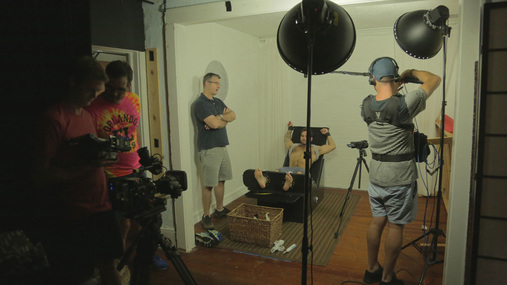 David Farrier & Dylan Reeve's Tickled is a fascinating investigative documentary following Journalist David Farrier as he stumbles upon the mysterious world of competitive tickling. A journalist who has made his career on profiling the fringe of society, Farrier becomes enamored by this strange "sport", but as he delves deeper into the organization responsible for hosting these tickling events he is met by fierce resistance, which only makes him even more curious to get to the bottom of this story. Told very much in the mystery/thriller, investigative journalism style, Tickled is the type of documentary that is hard to at least not enjoy simply for its mystery narrative, though I'd be hard-pressed to call this film anything more than a passable as it pertains to documentary filmmaking. Tickled is a film that is far too didactic in approach, often using style such as slow motion photography and music cues in an attempt to frame the expected audiences reaction. The narrative of this documentary is also a tad too didactic, as the journalist/filmmakers don't rely on visual storytelling, often narrating much of the film, almost as if the worry the audience won't be able to keep up. Still, Tickled is straight-forward and relatively engaging, having all the elements of a powerful documentary, but what becomes so frustrating about Tickled is the missed opportunities on a thematic level. Touching on various themes centered around corruption, influence, money, power, control, sexuality, and homophobia, Tickled is a film that only scratches the surface of its various complexities, instead simply relying on the sheer discovery of the perverse truth behind this competitive tickling ring, which certainly is fascinating but unquestionably a missed opportunity. Some may argue that Tickled simply doesnt want to jump to the conclusions, and while I can respect that argument, Tickled needed to be a little more forceful in its execution, relying too much on narrative. One great example is the film never touching on how the organization's primary tool for control was relying on homophobic society, using sham to primary gain power over these masculine, typically stocky men. A documentary that should be quite enjoyable to the mainstream film lover looking for something outside the box, Tickled is an enjoyable, unique story that only scratces the surface when considering the potential of its subject matter. 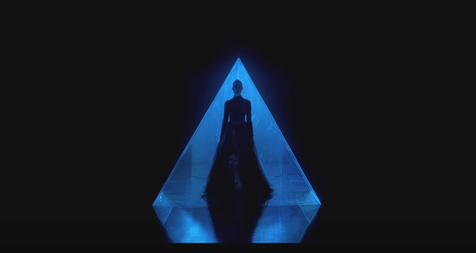 Nicolas Winding Refn's The Neon Demon is another subversive, stylistic nightmare by the Danish filmmaker, a film that uses the fashion industry as a way to look at the darker aspects of physical beauty, focusing on societies obsession with a trait that isn't earned, rather given through genetics. The film is centered around Jesse, an aspiring model, who has just moved to Los Angeles, attempting to break into an industry she has little experience in. Only 16-years-old, Jesse quickly befriends, and I use the term loosely, a make-up artist and two other models, whose catty demeanor is apparent right from the beginning. The two models in particular view Jesse as competition, someone who could take business away from them, but in an industry where youth and vitality are the most coveted attributes, Jesse begins to see her career excel, much to the chagrin of her "friends". Without going into too much detail, The Neon Demon is a film that is sure to confound some viewers with its heavy symbolism and abundance of style, but what Nicholas Refn has created is a film that captures the cannibalistic nature of competition, creating an expressionistic portrait of the downfalls of placing value on physical beauty, one where the collective ideals reinforce nastiness, fuel competition, and define a females' individualism by their physical appearance. In this film, Jesse is the quintessential symbol of beauty and vitality, a character whose near instant success places a bullet on the back of her head from the beginning. Jesse is a humble character, one who believes her only sense of value comes from her physical appearance, she has come to expect this, for better or worse, and seeks to empower herself through societies' values. Going from audition to audition, Jesse begins to catch the eye of the fashion industry, quickly supplanting her "friends" in some of the fashion shows and photoshoots. Jesse's humble demeanor begins to slowly shift towards narcissism, as she falls victim to the same type of collective idea of worth and value placed on physical beauty. One particular sequence, on a runway, visually expresses this change in demeanor of Jesse, where Refn uses mirrors to fill the frame with reflections of Jesse's beauty, the reflections kissing themselves as the color palette turns from blue to red, a visual representation of Jesse's assimilation into this collective ideal of female worth. Jesse is a character who conformed to what society wanted by accepting the ideal that her physical beauty defines her worth, and yet in the end she is destroyed by it, quite literally. Without going into details, the same collective that values physical beauty above all else destroys her because she reached the top, as Neon Demon presents a commentary not only on objectification but the inherent selfish, cannibalistic nature of society to want to be the best. While brooding and expressionistic, it is important to remember that The Neon Demon intentionally maintains a hyper-exaggerated sense of reality, one that effectively skewers the vapid culture of Los Angeles, exposing the nastiness which exists just under the veil of politeness. The film can be too "on the nose" at times, laughing at the absurdity of the situation its characters find themselves in, but I'd argue its playful absurdity is part of its charm, with Refn balancing the horror elements with absurdist comedy in a way that perfectly captures the craziness of this beauty culture. I'll take it a step further, I'd even argue that The Neon Demon's greatest attribute is how it exposes the true demon in cultural collectivism, and how that in itself eviscerates identity/gender politics. By the end of this film, both women and men have succumbed to this collective perspective of beauty, both feeding into the societies' ideal, becoming competitive to either get a piece of it (men) or become it (women). Hyper-exaggerated, stylish, and atmospheric, Nicholas Winding Refn's The Neon Demon is another fascinating nightmare which juxtaposes beauty with violence to startling and thought-provoking effect. |
AuthorLove of all things cinema brought me here. Archives
June 2023
|



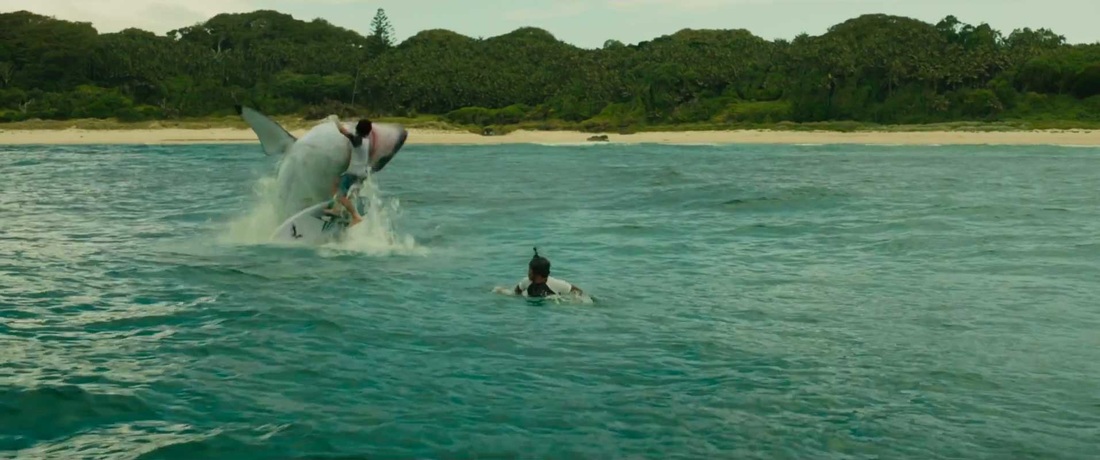


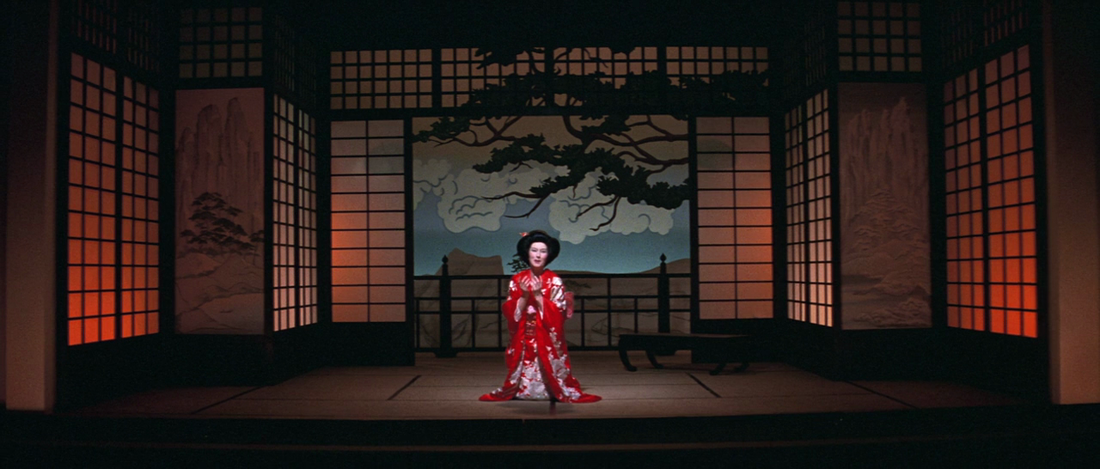
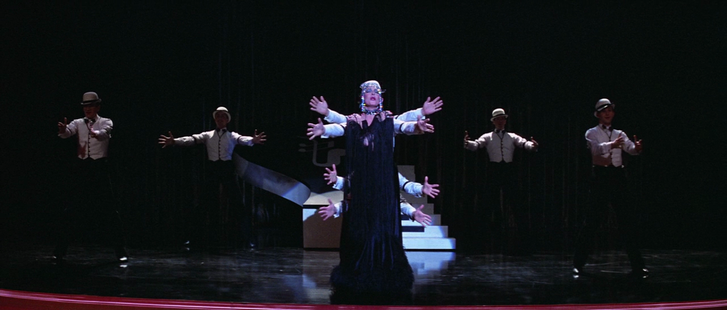
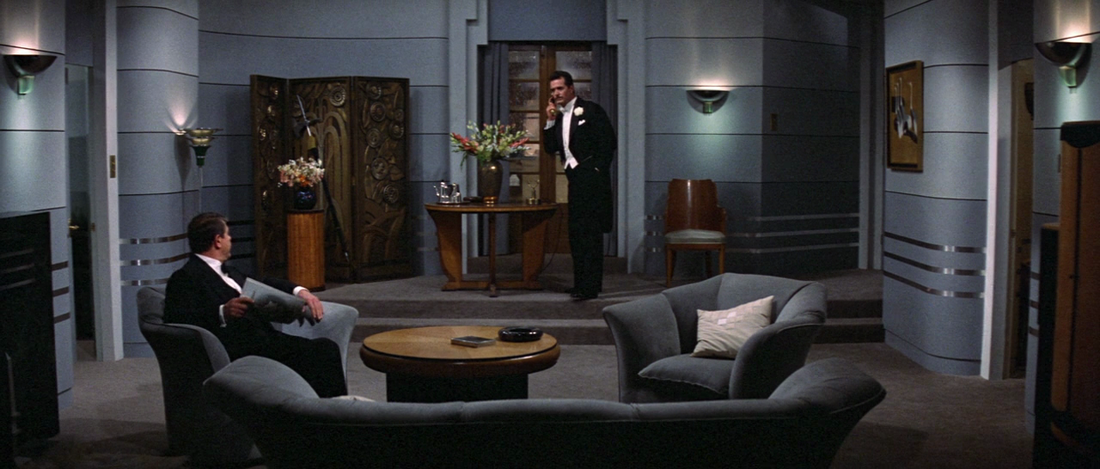
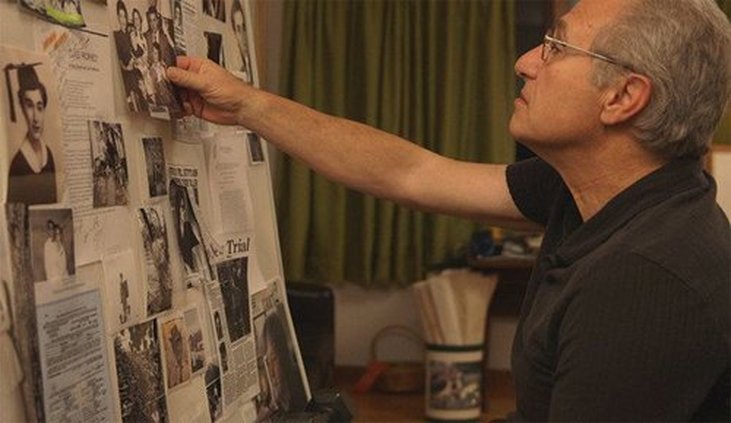


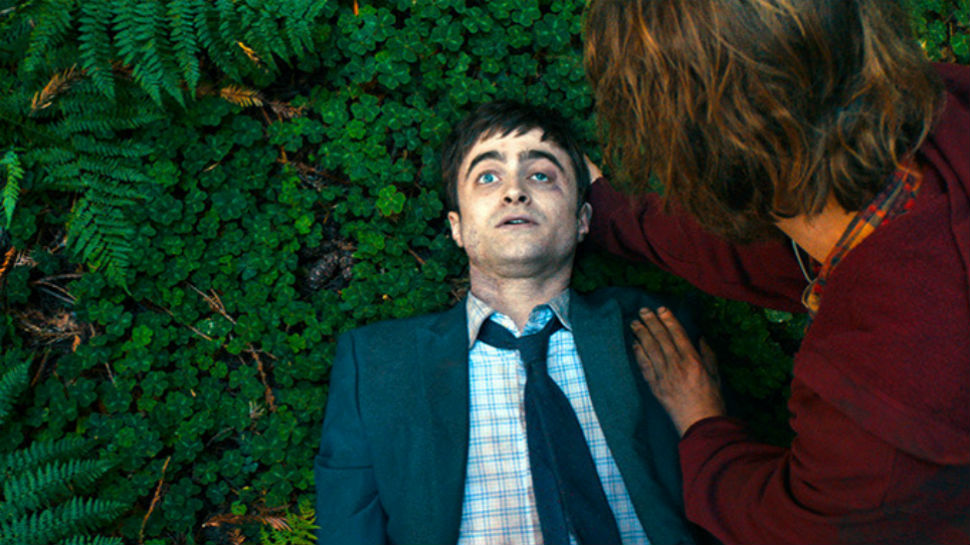
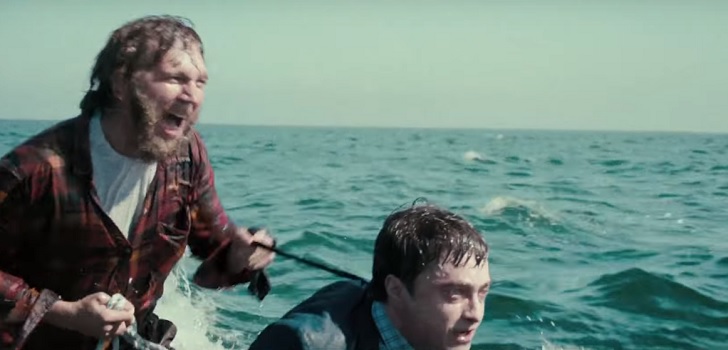
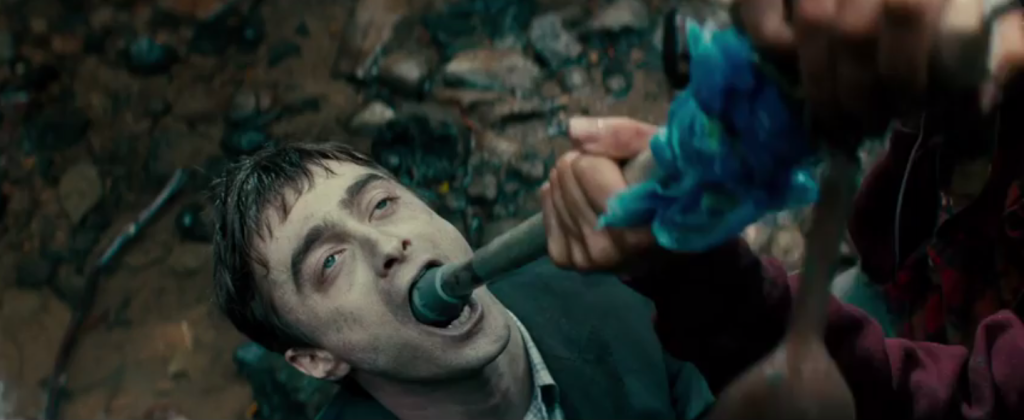
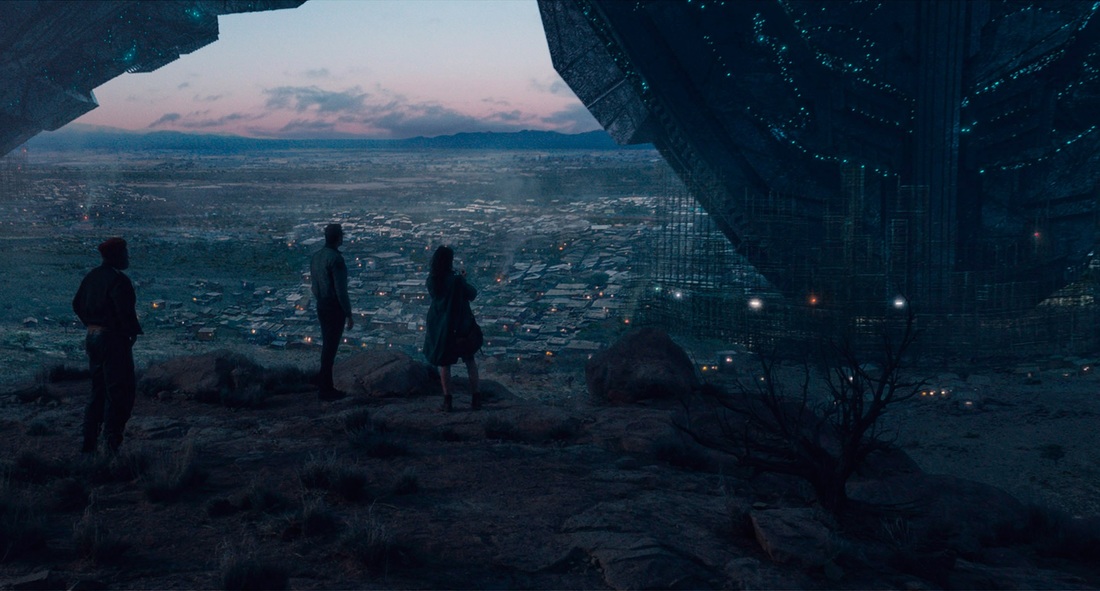

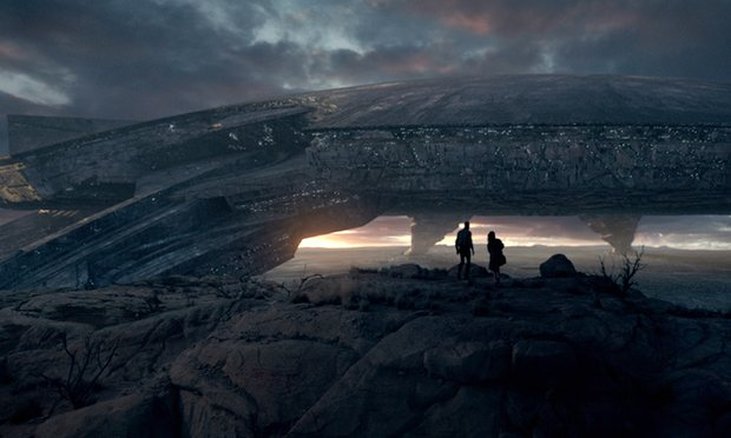

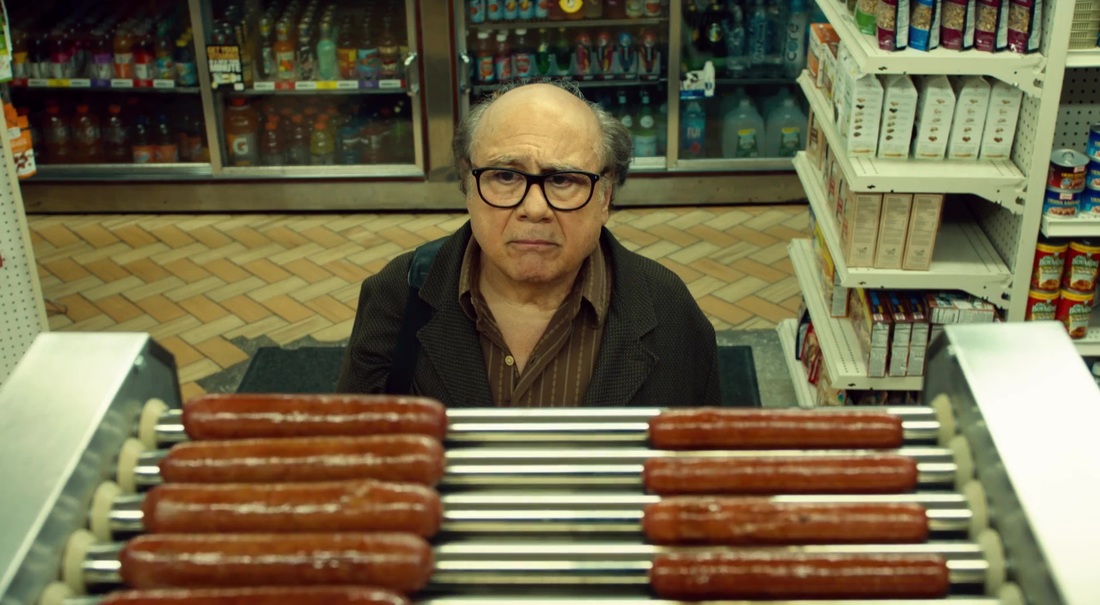

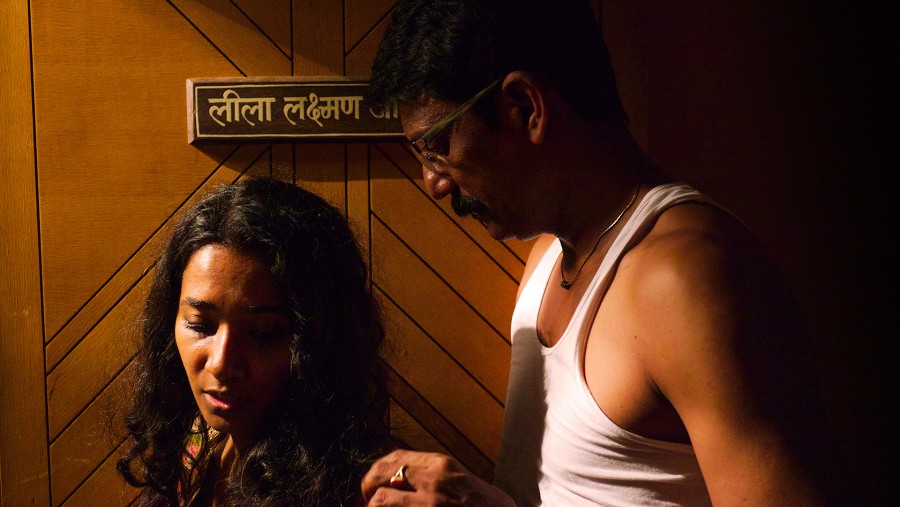
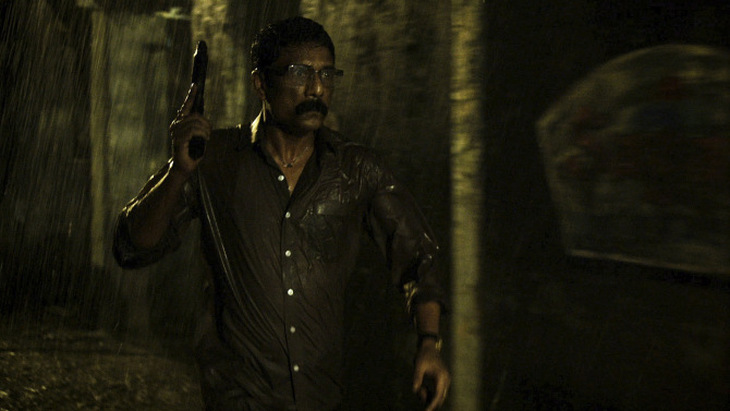
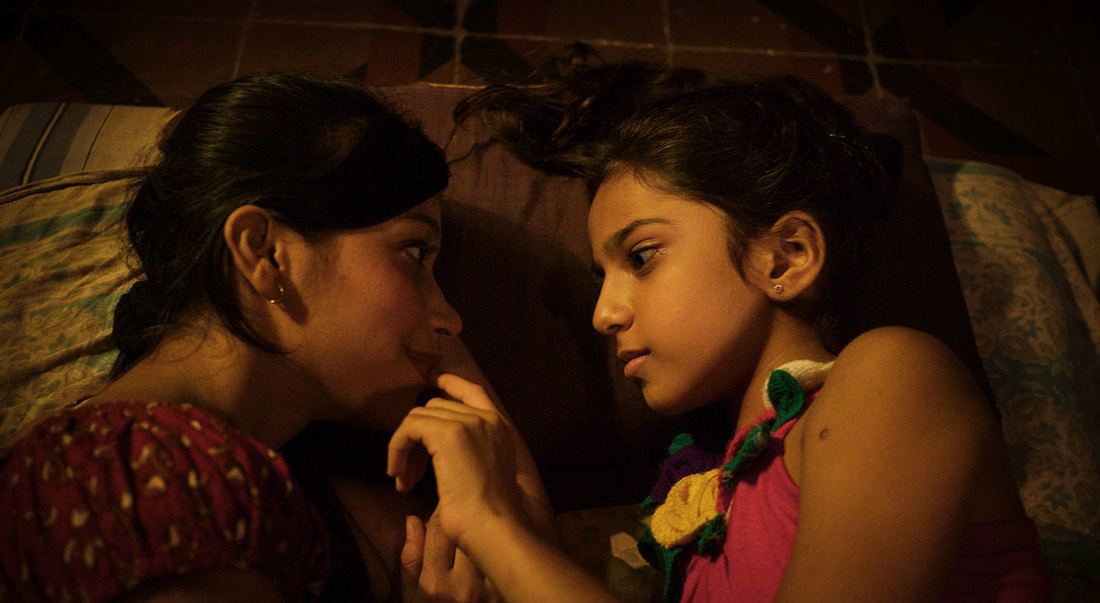
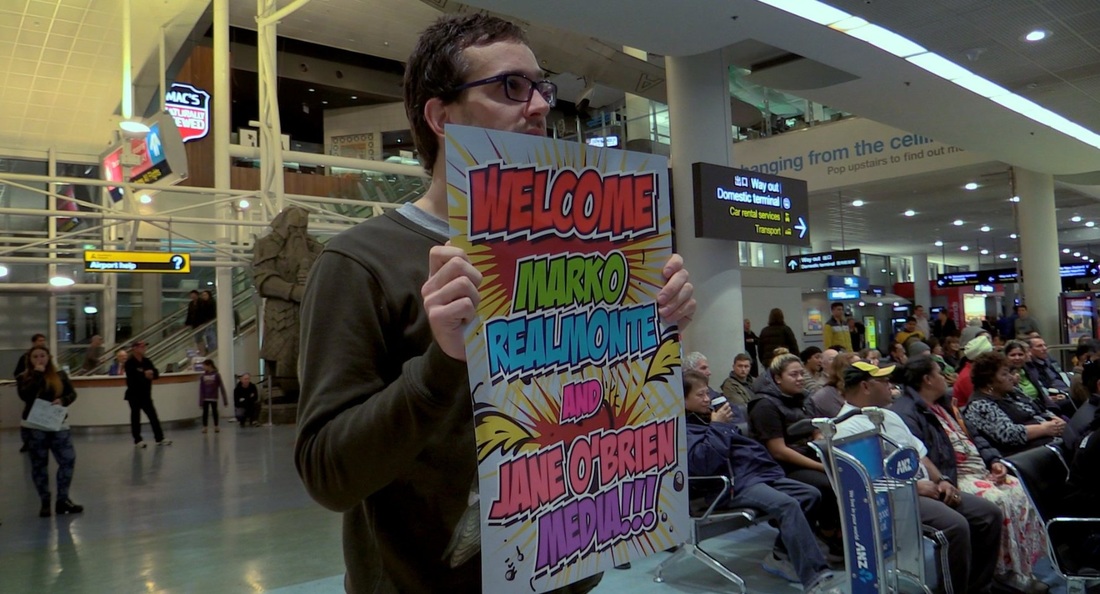


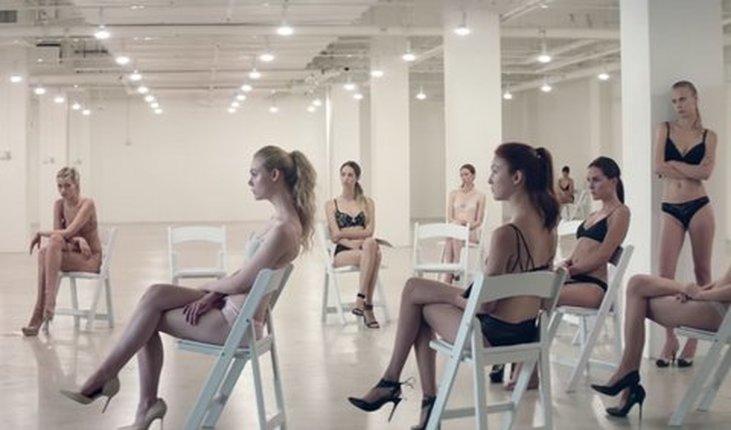
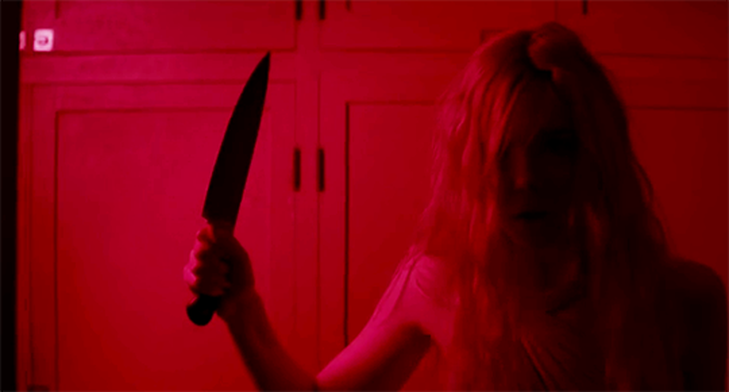
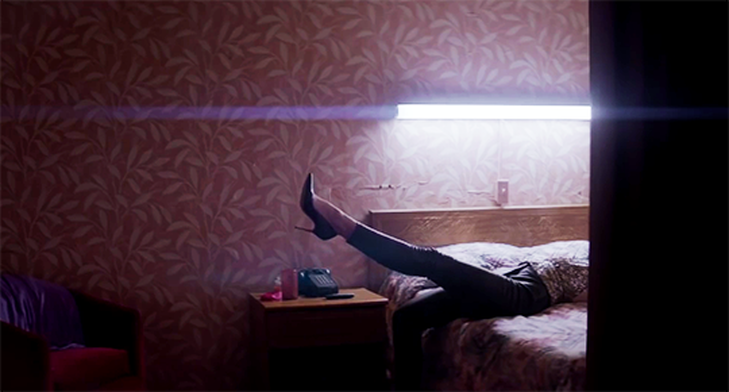
 RSS Feed
RSS Feed
